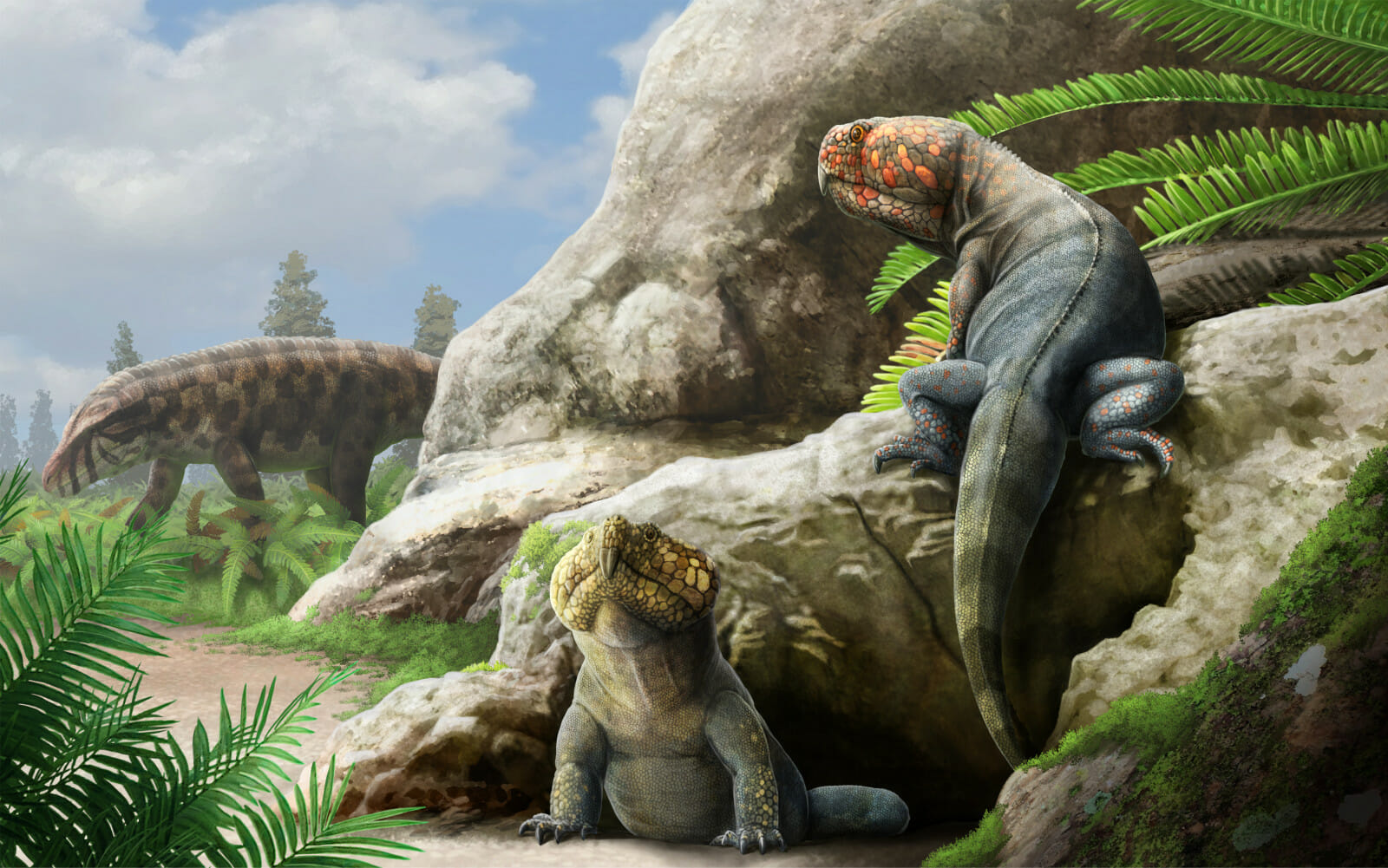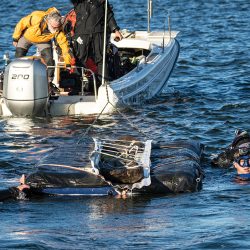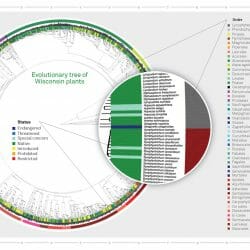
The newly discovered reptile species was named by tribal members in a collaboration between UW–Madison paleontologists and officials of the Northern Arapaho Tribal Historic Preservation Office.
Beesiiwo cooowuse was a squat, herbivorous relative of modern crocodiles and birds that had a beaklike mouth and roamed the globe between 237 million and 230 million years ago. Its name, pronounced “ah-se-wa’ ja’ aw-wu sa’,” highlights where its fossilized remains were unearthed: “big lizard from the Alcova area” of central Wyoming.
The newly discovered reptile species was named by tribal members in a collaboration between UW–Madison paleontologists and officials of the Northern Arapaho Tribal Historic Preservation Office. B. cooowuse is the first Western-science species to be named in the language of the Arapaho people.
The North American west is known for its incredible fossil record, and in recent years, UW–Madison paleontologist David Lovelace PhD’12 and several current and former UW students have developed a partnership with tribal representatives of the Eastern Shoshone and Northern Arapaho on the Wind River Reservation. “UW–Madison students and scientists are all working together to integrate Western science, Native science, and traditional ecological knowledge,” Lovelace says.
Published in the Fall 2023 issue



Comments
No comments posted yet.